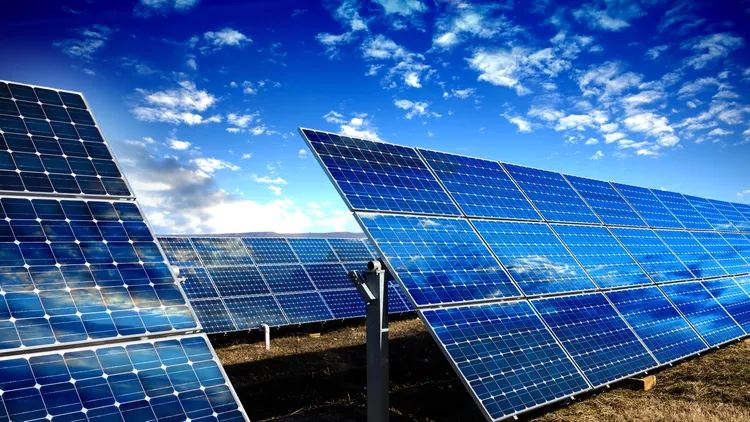Your Guide to DIY Solar: Build and Power Your Home Sustainably
| Solar Power Basics | Assessing Needs | Choosing Panels | Installation Tips | Maintenance |
|---|---|---|---|---|
| Fundamental concepts of solar energy and how panels convert sunlight | Energy need calculation and factors to consider | Types of panels, pros/cons, and how to choose | Step-by-step guide, safety measures, and mounting tips | System maintenance and common troubleshooting tips |
Introduction
We at Rival Energy believe in empowering you with the knowledge to harness the sun’s power for your home. Today, we’ll walk you through designing and installing your own solar power system. This guide is crafted for homeowners who are ready to take a step towards self-sufficiency and sustainable living.
Understanding Solar Power Basics
Solar power transforms sunlight into electricity that you can use to power your home. This clean energy source is harnessed using solar panels. Here’s our brand image depicting a stellar solar DIY setup to kickstart your journey
.
Assessing Your Solar Power Needs
Determining how much energy you use is the first step to sizing your solar power system. Consider your daily energy consumption, where you live, and the amount of sunlight your area receives. We’ve got a wealth of information on our solar power category page to help you through this phase
.
Choosing the Right Solar Panels
There are many solar panels on the market, each with its benefits and drawbacks. Whether you’re looking at efficiency, cost, or durability, we’ve detailed comparisons to help you decide. This includes insights into affordable options like cheap solar panels from Amazon
.
Solar Power System Components
A solar power system includes more than just panels. You’ll need a reliable charge controller like our recommended brand, Renogy Rover
, along with batteries and an inverter. Discover how these components work together in our Renogy Rover charge controller review.
Installation Tips and Safety
Installing a solar system is a rewarding project, but safety is paramount. We provide a step-by-step guide, from choosing the right location to securely mounting your panels for optimal solar absorption.
Connecting and Testing Your System
Once everything is installed, it’s time to connect and test. We’ll show you how to hook up your panels to the charge controller and batteries, then to the inverter. Follow our guidelines to ensure your system is running smoothly.
Maintenance and Troubleshooting
Keeping your system in top shape is essential for long-term performance. We offer Maintenance advice and share common troubleshooting tips for issues that might pop up down the road.
Final Thoughts and Additional Resources
We hope this guide leaves you feeling equipped and inspired. Remember, designing and installing your solar system is a remarkable and sustainable step forward. For further inspiration, check out our final brand image of a DIY solar setup


